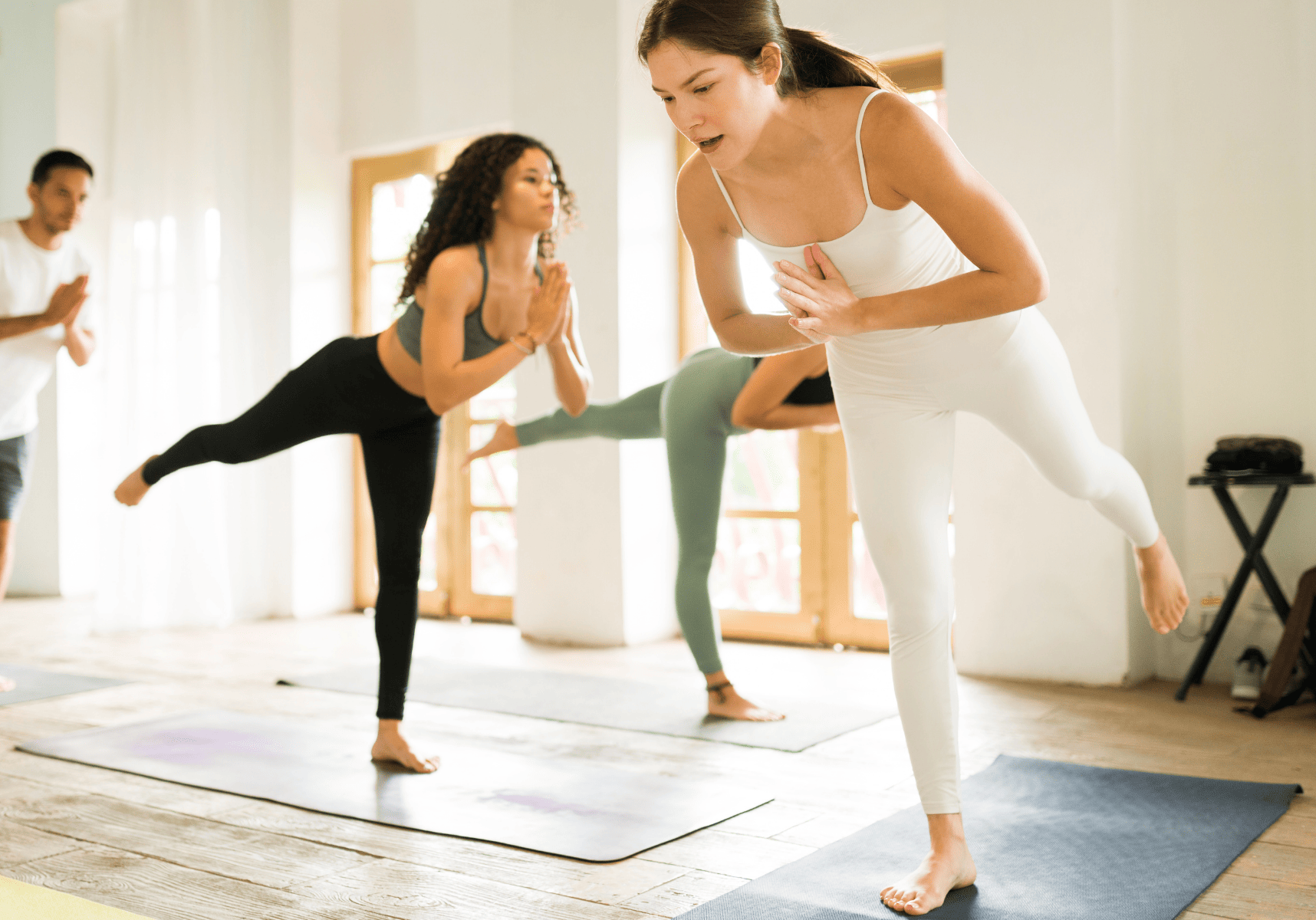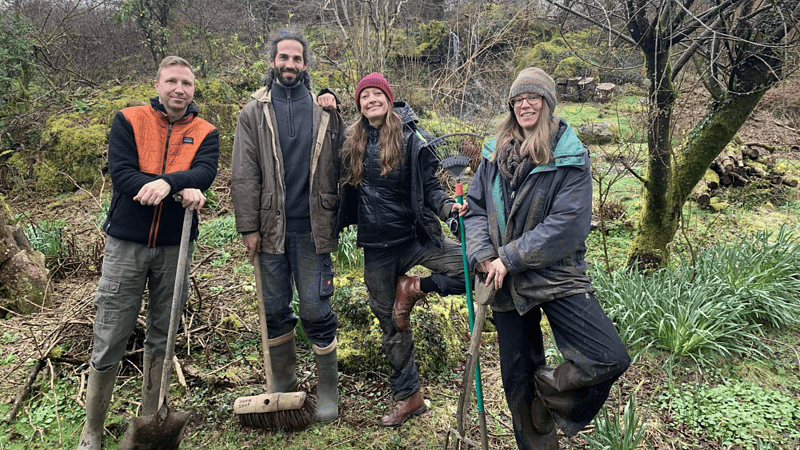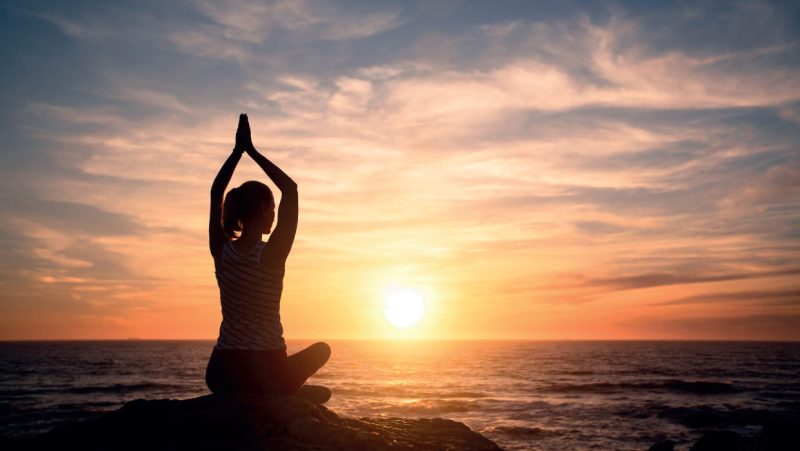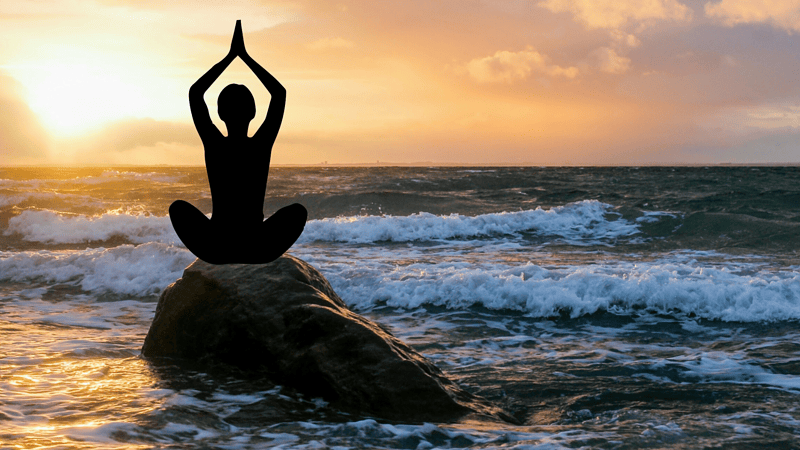
Trusting the Journey as a new Yoga teacher
Navigating Self-Discovery, Growth, and Unwavering Passion - By Aga Smith
Reading time: 4 minutes
The path of becoming a yoga teacher transcends mere physical postures; it unfolds as a profound journey of self-discovery and skill cultivation, evolving over time.
Isn't the remarkable process of teaching yoga a gateway to multifaceted personal development, guiding us through diverse dimensions of growth and transformation?
Self-Acceptance
Around the twentieth class, a mindset shift can happen. You go from wondering if you're good enough to confidently saying, "I'm a yoga teacher!" You might not know it all, but your hard work and class prep put you ahead. You realise that every master was once a beginner, and the only way we can get better at something is with practice.
Once this energetic shift occurs, you will become magnetic to your students. The shift varies from person to person. The number of classes it takes to find this confidence differs; for some, it will take 10- 20 classes, for others 50.
It doesn’t matter as long as you love what you do, and you have students who keep coming back as you are growing together. Let the journey of your growth unfold organically. Take care of your mind—meditate and focus on breathing when things get overwhelming. Emotional overwhelm leads to anxiety.
Meditate, focus on conscious breathing. During those first 20 - 40 classes, you will make mistakes. Things won’t go exactly as planned, and this is why self-acceptance is so important. You are human. Accept yourself, and then whenever ups and downs happen, you will be very forgiving and understanding towards yourself. You are unique in your own way. Own it. Accept yourself for who you are. Ignore your inner critic.
Imposter syndrome can hit strong, but don’t trust your mind when it takes you astray. Have more compassion toward yourself. Self-acceptance is all about learning to appreciate every part of yourself, even the qualities you don’t like.
“When you are content to be simply yourself and don’t compare or compete, everyone will respect you.” — Lao Tzu, “Tao Te Ching”
Self-Awareness
At some point, people will come to your class and tell you that your class was amazing, and you will never see them again. You might have people leaving your class for whatever reason; sometimes they have a headache, sometimes you might trigger them, but it doesn’t matter. Never take this personally. It is impossible to please everyone, so focus on those who keep coming back because they enjoy your classes. It doesn't matter if not everyone likes your style.
Focus on those who keep coming back. Learn the names of your regular students; they really love it. Don’t take it personally when your regular student doesn’t show up to your class, we all have lives. Develop self-awareness to transcend personal attachment to outcomes. When you become self-aware, you will step into your power to realise that whatever happens in the class is happening not TO YOU but rather FOR YOU, so you can become the observer and draw conclusions that will lead to personal growth. Become an observer.
Watch yourself from a different perspective, raise above situations, and observe your thoughts, speech, and movements; they are valuable tools for your evolution. Be an observer of your own teaching journey, gaining insights that fuel personal growth.
Confidence
At first, you'll stick to your mat*—it's your comfort zone. But real confidence grows when you step off it and move between students, give verbal instructions, and demonstrate poses from a side of the room. It all depends on the size of the room, of course. In a large studio, the class will look different compared to a small room. But consciously choosing to leave the mat and allowing yourself to walk around the class can bring some new discoveries and perspectives.
With confidence, easiness comes. You are no longer worried about not knowing what to do next. Even when at some point you forget the next move or pose, you are able to come out with a new pose during the flow. Having your notes can be very helpful, but not always necessary. Even when you move through the sequence too fast and you still have plenty of time before the class finishes, you now know that you can add some other poses to the flow. Building the mental “library” of poses and cues makes the whole teaching process easier.
You can now mix and match poses from your previous classes and experience to make them into one flow. As your confidence grows, you look people in the face, and you don’t get discouraged when you don’t see any expression. You understand they are deeply engaged in their practice, the last thing they want to think about is smiling. What really helps with gaining confidence is realising that if someone came to your yoga class, it is because they know less than you and they need your guidance to practice yoga.
Self-Love
Let your self-love be stronger than a fear of rejection. When you love yourself, and you love what you do, you will do your best to provide the service. Not everyone is on the same journey of self-love, and that’s ok. If you feel you are lacking self-love, have a chat with your mirror reflection. Listen to your own body. Sometimes you will feel tired, or you will be in pain. Your body is sending you signals. Of course, you want to deliver the best services, but always put yourself first. If you don’t feel like you are able to lead a class, find a cover or cancel the class. Do it for your own good. Your real wealth is your good health. Love yourself on your good days and love yourself on your bad days.
A Holistic Transformation
In the sacred realm of teaching yoga, the evolution from novice to seasoned instructor is a testament to personal growth and resilience. Embrace the imperfections, relish the breakthroughs, and honour the unique path you tread. As you delve into the intricate dance of self-acceptance, self-awareness, confidence, and self-love, remember that your journey is as individual as your practice. Let go of comparison, revel in your uniqueness, and continue to nurture the flame of your passion.
Becoming the best version of yourself as a yoga teacher is not a destination but an ongoing expedition—one that unfolds with each breath, each class, and each interaction. So, stand tall in your authenticity, share the gift of yoga with an open heart, and let your evolution inspire both your students and yourself.
Namaste.
*commission earned from this link







